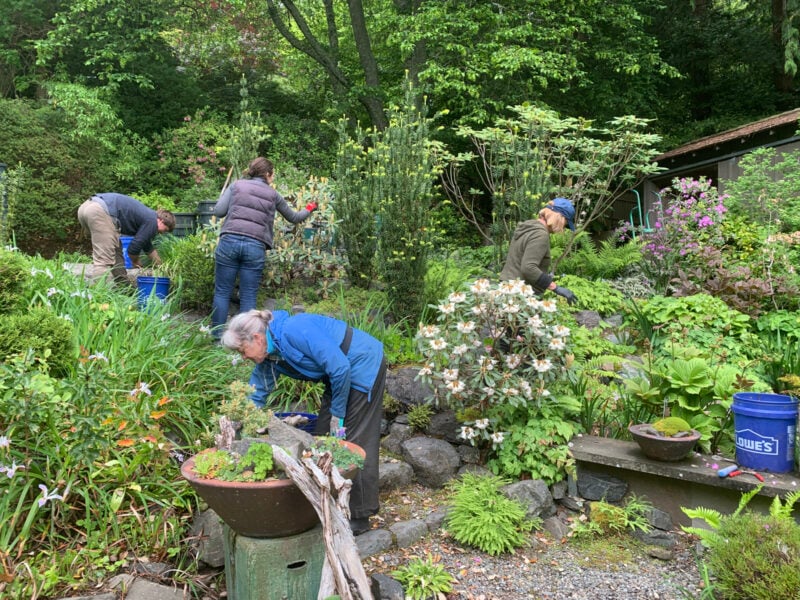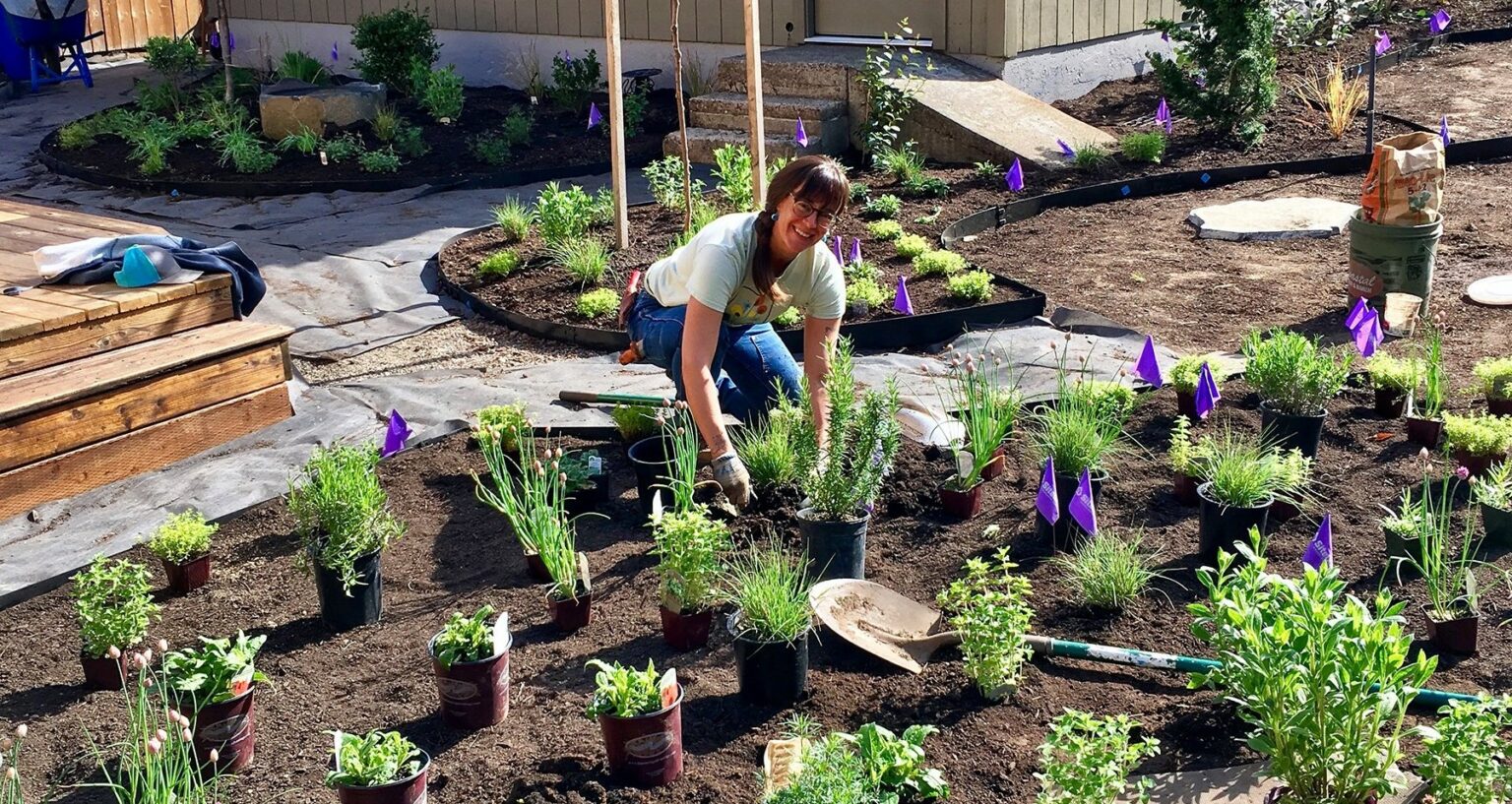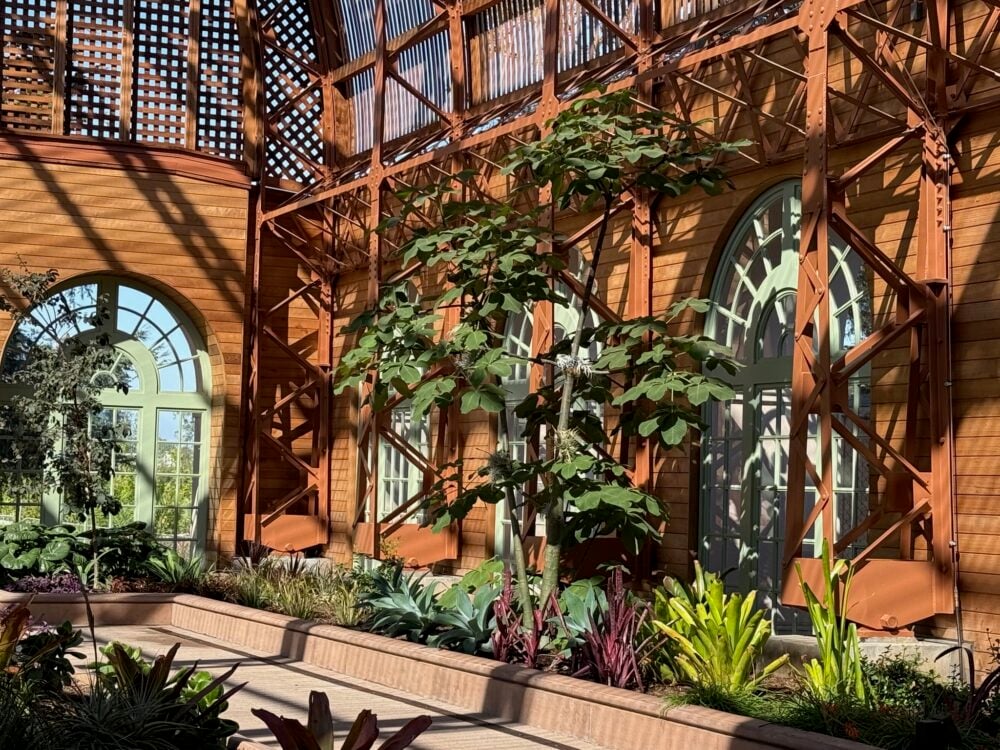
Science on the Benefits of Gardening: Gardening is Good for Us, But Why?

Contributor
- Topics: Nature is Good For You
Summer 2023
Imagine yourself sitting in or alongside your favorite garden. Chances are this image evokes a sense of contentment or accomplishment as you conjure up pictures of fruit-laden tomatoes or fragrant red roses. A love of gardening is so widespread among global cultures that we take for granted that the care of gardens must benefit us in various ways.
Scientists, however, are never satisfied to rely on assumptions, so in 2016 a team of researchers published a paper titled, “Gardening Is Beneficial for Health: A Meta-Analysis” (Soga, Gaston, and Yamaura). The researchers reviewed 22 previous studies that had examined the health outcomes for active gardeners versus non-gardeners. After conducting a detailed statistical analysis of the included studies, the authors found that gardeners displayed consistent psychological benefits—including reductions in depression and anxiety, and increases in life satisfaction, quality of life, and sense of community, along with physiological benefits such as reduced body mass index (BMI).

These results parallel those from a similarly titled paper, “Gardening for Health: A Regular Dose of Gardening,” by Dr. Richard Thompson (2018). Thompson cites numerous other studies that have found that spending time in the vegetable patch increases exposure to sunlight and provides a vital dose of Vitamin D, that working in the garden restores dexterity and strength, and that gardening uses the same number of calories through aerobic exercise as some gym workouts—without requiring a membership. Thompson also cites an Australian study that found gardening can have a profound effect on our mental health, even protecting against the early stages of dementia.
Combining the psychological, physiological, and attitudinal benefits now known to be associated with gardening, one might wonder why everyone doesn’t garden. One barrier is available space, as millions of apartment dwellers are limited to caring for houseplants or perhaps a few windowsill vegetables. Communal gardening projects, such as community or amenity gardens, can provide a solution to the space problem while improving social connections for individual gardeners. As folks garden together, or simply tend gardens that can be viewed by the public, social isolation can melt away while sharing extra produce and garden wisdom.

Another hurdle is a perceived lack of time in a work-and-activity-driven culture where gardening can be seen as a luxury that simply doesn’t fit into one’s busy schedule. But gardening need not be a huge time sink. After a challenging day of work, spending even half an hour pulling weeds or watering plants can be a great stress reliever while keeping the garden healthy and attractive.
Starting out in gardening can be a challenge, and another common deterrent to becoming a green thumber is a fear of failure. When we place a seedling in a vegetable bed, or dig a hole for a new tree planting, we’re committing an act of faith that the plant will establish, grow, and thrive, for one growing season or for a lifetime. But plants are living organisms and are prey to all sorts of weather and pest factors that can shorten their lives. Beyond that, plants can often fall below our expectations of them—few or no flowers on a crabapple, anemic new growth on an aster, or gangly and unsightly limbs on an elderberry.
While such disappointments are never welcome, they provide the basis for what I feel are two of the greatest but rarely cited benefits of gardening: developing a sense of both patience and resilience. It seems that every region in this country is increasingly experiencing extremes of weather, including droughts, floods, late spring frosts, or excessive summer heat. These unwelcome changes can quickly turn thriving plants into sad skeletons of lifeless leaves.
Patience teaches us to accept these setbacks and to take the long view. Yes, plants sometimes succumb to unwelcome weather or invasive pests. But if your tender seedlings of peppers or tomatoes have withered before becoming luxuriant specimens, a quick visit to a neighboring garden center can provide replacements and display your horticultural resilience.
We are often reminded, in song and essay, about the brevity of our individual time on earth. While some studies have also shown that gardening and other nature-based activities actually extend average lifespans, a more significant effect of green exposure is on our ways of perceiving the world. We can spend our days obsessing over political or economic turmoil, social problems, or environmental degradation. Or, we can respond to our sweaty, dirty gardening activities with a sense of awe at the mysterious, wonder-filled natural world; with deep feelings of appreciation when harvesting the season’s first strawberries; and with a renewed sense of patience when we assess a gardening failure, take a deep breath, and vow, “We’ll succeed with this next year.”
Gardening improves our mental and physical wellbeing, gardening satisfies an innate human desire to create. Where else but in gardening can we use a palette of living organisms to build landscapes that can inspire both creator and beholder? Only a garden, among all the creative arts, connects us with nature in ways both satisfying and humbling. And only a garden can welcome us, without judgement, back into its fold.
Resources
For more information on therapeutic gardening, see Sue Stuart Smith’s The Well-Gardened Mind (2021), as well as Therapeutic Landscapes (2013) by Clare Cooper Marcus.
Soga, Masashi, Kevin J. Gaston, and Yuichi Yamaura. 2016. “Gardening Is Beneficial for Health: A Meta-Analysis.” Preventative Medicine Reports 14 (5): 92–99. doi: 10.1016/j.pmedr.2016.11.007
Thompson, Richard. 2018. “Gardening for Health: A Regular Dose of Gardening.” Clinical Medicine 18 (3): 201–205. doi: 10.7861/clinmedicine.18-3-201










Responses